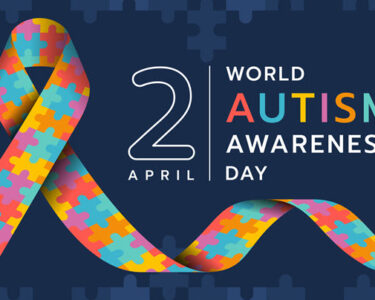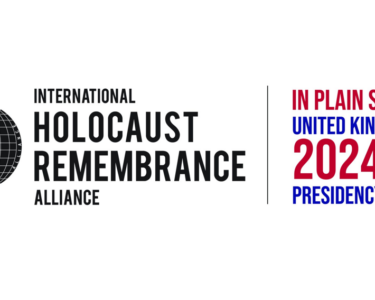Our research suggests that one third of secondary school pupils massively underestimate the scale of the genocide of Jewish people, believing that the number killed was two million or less, with 10% believing that less than 100,000 people had been murdered.
The Centre surveyed over 8,000 pupils and held follow-up interviews with more than 300 across all years of secondary education in England. When asked who was responsible for the Holocaust, more than three quarters of pupils only mentioned Hitler and the Nazis, not recognising the complicit involvement of hundreds of thousands of ordinary citizens across Europe. Over 50% believed that the largest number of killings were in Germany rather than Nazi-occupied Poland, the location of all five of the major death camps and the largest number of Jewish ghettos.
Most young people appear mystified by why the Holocaust happened, beyond a vague idea of ‘hatred’ and ‘prejudice’. Less than one third of pupils who had studied the Holocaust knew what antisemitism meant; this can be compared to over half who knew what Islamophobia meant and over 90% who understood the term homophobia.
Holocaust survivor, Ben Helfgott, President of the Holocaust Memorial Day Trust, member of the Prime Minister’s Holocaust Commission and advisor to the Centre for Holocaust Education said:
“Over many years I have been involved in a number of initiatives and activities surrounding schools and education, as well as working closely with survivors. I believe that the Holocaust was a human act that we must seek to understand, and the more we understand, the more we can do to prevent it from happening again. This is why Holocaust education is so important. We must continue to teach it because there will come a day when there are no survivors left, and it must not be forgotten.”
Today, on the 70th anniversary of the liberation of Auschwitz-Birkenau, research has shown the need for a rigorous in-depth approach to teaching and learning so that pupils understand the events that led to the Holocaust and how societies can descend into mass violence. Positively, the study showed that 88% of pupils thought it important to learn about the Holocaust with 70% wanting to know more about what happened.
Over 90% of young people who have met and heard the testimony of a Holocaust survivor reported that it had been a meaningful experience that made history feel more real to them. Although 88% reported that the experience had been upsetting, in interview pupils explained that this was a positive and necessary process of learning about a difficult period of history.
Dame Helen Hyde, DBE, member of the Prime Minister’s Holocaust Commission and Headteacher of Watford Grammar School for Girls said:
“Twenty five years of Holocaust education has achieved a great deal, but the university led approach pioneered by the Centre for Holocaust Education brings something new that will benefit the whole field. Its research identifies gaps in knowledge and understanding and its programmes are uniquely designed to address those classroom needs.
“The Centre for Holocaust Education is part of the world’s leading university for education and already their work is having a significant impact: in just five years they have worked with over 4,000 teachers and have built a network of ‘Beacon’ schools, of which my own school is one.
“Some 15 members of my staff have benefitted from the Centre’s free teacher development programme and the lesson materials and classroom activities have helped our pupils to gain deeper knowledge and more powerful understanding of the Holocaust.”
Stuart Foster, Executive Director of the Centre for Holocaust Education said:
“We are delighted that our early research has helped inform the Prime Minister’s Holocaust Commission. We know from our research that there are many dedicated and committed teachers who are convinced of the importance of Holocaust education but who face enormous challenges in doing so effectively, particularly with very limited curriculum time. But we also know that it is possible to explore this complex and emotionally challenging history in depth and in effective, age-appropriate ways; that there are schools we are engaged with that are doing exceptional work. So I believe with the right support and resources, substantial progress can be made in Holocaust awareness in this country.”
The Centre for Holocaust Education study has contributed to the Prime Minister’s Holocaust Commission report published today. See the full report.
Notes to editors
- For further information please contact Jon Waldren, Press Office tele: 020 7911 5423 email: j.waldren@ioe.ac.uk
- The UCL Institute of Education Centre for Holocaust Education will publish the world’s largest survey of young people’s knowledge and understanding of the Holocaust in March 2015. The research draws on the responses of over 8,000 respondents and interviews with 300 pupils across all years of secondary education. The Centre for Holocaust Education is the only specialist institute supporting teachers in the classroom with research-based activities. The resources offered by the Centre help teachers to respond to the questions pupils have about this complex past: how was it possible, not long ago and not far from where we live, that people across Europe participated in the killing of their neighbours? Why didn’t more of the victims fight back? What did people know about what was happening and why didn’t they do more to prevent it?Refusing to provide simple ‘lessons from history’, pupils are encouraged to explore the complexity of the past and construct meaning for themselves. This is a deep learning process, as it challenges stereotypes, myths and misconceptions, enables students to ask their own questions and follow their own lines of enquiry, and develops a critical mind-set that fosters a more humane, open and intelligent way of interpreting the world.Further information about free teacher development and access to free teaching and learning materials can be found at Centre for Holocaust Education
- Holocaust Memorial Day is a national day of commemoration dedicated to the remembrance of those who suffered and perished during the Holocaust, under Nazi persecution and during subsequent genocides, such as those in Cambodia, Rwanda, Bosnia and Sudan. The date 27 January is the anniversary of the liberation of the Auschwitz-Birkenau concentration camp in Poland in 1945.
About the UCL Institute of Education
The UCL Institute of Education is a world-leader specialising in education and the social sciences. Founded in 1902, the Institute currently has more than 7,000 students and 800 staff. In the 2014 QS World University Rankings, the Institute was ranked number one for education worldwide. It was shortlisted in the ‘University of the Year’ category of the 2014 Times Higher Education (THE) awards. In January 2014, the Institute was recognised by Ofsted for its ‘outstanding’ initial teacher training across primary, secondary and further education. In the most recent national assessment of universities’ research activity, the 2014 Research Excellence Framework, 94% of our research was judged to be world class. On 2 December 2014, the Institute became a single-faculty school of UCL, called the UCL Institute of Education. www.ucl.ac.uk/ioe
About UCL (University College London)
Founded in 1826, UCL was the first English university established after Oxford and Cambridge, the first to admit students regardless of race, class, religion or gender, and the first to provide systematic teaching of law, architecture and medicine. We are among the world’s top universities, as reflected by performance in a range of international rankings and tables. UCL currently has over 35,000 students from 150 countries and over 11,000 employees. Our annual income is over £1bn.



